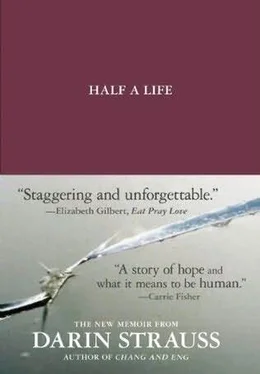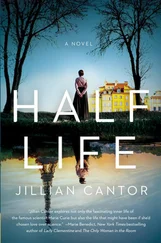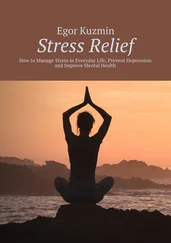Meantime, the speech inched ahead. A lot of sentiment and intensity, but a kind of murk when it came to purpose and message. An official speech.
“This is the exact sort of tragedy that is so difficult for a town to get over …” the principal said (or something very like this).
A cluster of helium balloons on the ceiling left tinted shadows on large-haired girls in sleeveless denim, on jocks and druggies, on some mats piled in a corner, on preppies in tennis outfits, on flannel shirts rolled to the elbow; over hoisted basketball hoops and the intelligent faces of my own anxious clique. It seemed like the Sgt. Pepper’s cover. I was pelted by the storm of color and variety. I was sitting freely among the student body. No one had stopped me.
“A disaster of this magnitude,” the principal was narrowing her eyes at a note card, “makes us look ahead and how we can strengthen this community using our shared values …”
Some crude engine of self-preservation revved up in me. “Um,” I whispered. “I think, um.” I was presenting total emotional vulnerability: a calculated decision. “Um, I think—”
Now, I felt no sadder at this particular moment than I’d felt during any recent other ones. (I had been constantly hurting.) But I felt oversized and bright again, spilling glow on people. I needed everyone to see that this — not just the death, but all this silent judgment, plus the stroke of our principal having given this speech in front of me — I needed everyone to see that it all touched me, too. I needed this for a simple reason: If I were able just to sit here and take it, I’d have been a monster in their final memories of me.
“Many of us have stories about Celine, so many wonderful and inspiring and …”
So here was another ritual. As in all rituals, people had expectations about how it should be performed. It was as if every moment at which I could have expressed my real sense of what had happened — my anxiety, confusion, queasy guilt; the Houdini sensation that everyone who escapes blame feels, everyone who has been pronounced blameless — they all worked to obstruct that sense. It was blocked off by a completely different sense, that of other people watching me.
“Excuse me,” I said. I said, “I’ve got to get out.”
And with each ritual performed successfully, another wall came up between me and the people I might have gone to and said: I don’t know how to feel about this. Because if I admitted that, it would mean my public self had been a lie, and that lie would become their lasting thought of who I was.
“Excuse me, please.”
I pushed through the crowd, which had turned startled and buzzing. I wasn’t really any more inconsolable than a ham in a refrigerated case. Dumb pink meat.
“Excuse me, please,” I said, with my pre-averted eyes. “Just need to get, um.”
Where was I going? This seemed new — this slow, vile feeling of complaisance. (Although I suppose there isn’t much progress in a personality: I’d done pretty much the same act for those girls I’d met at the accident site, when I’d slipped to my knees. Those girls had wanted some absolute image of guilt, and I’d matched up with every public presentation of large responsibility we’d all ever seen.)
Now I wanted the gym to note the impressiveness of my fighting off tears. Inside the shadows of my own life, I was still fumbling around to feel, in a genuine way, my role. (Even the final “um” was deliberate. It felt, in my throat and mouth, sappy.)
At last I got away. I was alone.
Outside the gym door, sunshine after a rain. Dew winking on grass, the parking lot looking scrubbed and raked, sun clipping off car tops, bright sky reflected in pools on roofs and tennis courts. At the edge of it all, there was a large maple — water stuck in a hundred leaves — having a private rainstorm.
I stood and watched and felt pleasantly without audience. Wind collected in my shirt at the armpits and feathered through the hair in front of my ears. I saw geese honk by and heard the leathery muscular flutter of their wings. How hard these birds work to get aloft! I’d never thought about this before. And all around, the pepper-and-grass smell of a clean world after rain.
It was only after a moment that I realized my friends Eric and Jim (Jim, the movie-line cut-up) had come to join me out by the back fields. My escape from the gym — from its collective, frowning expression — wasn’t just cynical and vain. Removing the distraction of myself had been, in part, a considerate act. Or my idea of considerate. Now the event could continue, as if Celine had been killed not by my car, but by a lamppost or a tree. That is to say, killed not by a classmate, but by one of the world’s hard, inarguable stops. That’s how it seemed, at least, in the bop and echo chamber between my ears. And I appreciated that my friends were here, that they’d shuffled after me outside. If I’m remembering right, we didn’t say anything. Outside the school, I felt no need to cry, even to pretend. I had the jitters you get when you sense you’ve pulled a fast one. That was in there, too. But what exactly had I pulled, and on whom? I kept churning from mood to mood. The fact that it really had been impossible for me to sit in that gym and hear about Celine’s death — this hadn’t occurred to me. Eric, anyway, had also caught the jitters. His shiny face, when I glanced to the side, showed the tender curl of smile on his top lip.
So my friends and I just hung out for a while, tumbling quietly through the new uncertainty of things. The coming graduation; leave-taking; the world beyond us damp and sunny and waiting for our entrance. I thought that having fled a high-school gym with the selfishness of a coward just because someone’s name is mentioned (and because yours isn’t) maybe didn’t meet all requirements of living your life valiantly for two people. I thought how unlucky it was that, of all the kids in this school, of the five carloads of people who had witnessed the accident — of all the possible others in Long Island— I’d been the one who’d had some girl’s bicycle swerve left into his car. It was the obvious thought, and the first time I’d really felt it. And I thought with uncomplicated gratitude how strange and fortunate it was that I still had a life. I thought what it might mean not to have a life. (I didn’t get very far on that one. What could it mean? It was absence: what was Celine not experiencing, not thinking about, not planning?) I thought I would powerfully if gradually rise above despair. I thought maybe I still didn’t feel the right amount of despair. I thought how do you calculate a sum like that? I thought about unrealized lives. I thought Celine’s parents were both probably home right now, not working on this workday. I thought, Who was I kidding, I’ll never get over this. Or maybe her parents had had to go back to work already, and was that the sadder thing, life forcing you to just go on? I thought how vacant and baggy their house must seem. I remembered my house the day I’d stayed away from school: so moonscape empty. I thought of a house seeming that way all the time, breeze slanting in under the bottoms of windows, carrying warm leaf smells and tarmac-and-exhaust smells, sun on floors and corners and tables. And there also, the undeniable emptiness, the silence on everything, that want of familiar noises — of another creature’s set of noises.
Eric peeked back inside the gym to see the principal finish up her talk. Then we reinserted ourselves into the crowd. Oh, look at this: Darin’s back. I was a piece of living trivia. The balloons, that broad squeaking heaven, still floated overhead. I took my seat, the ceremony went on, etc.
Читать дальше









